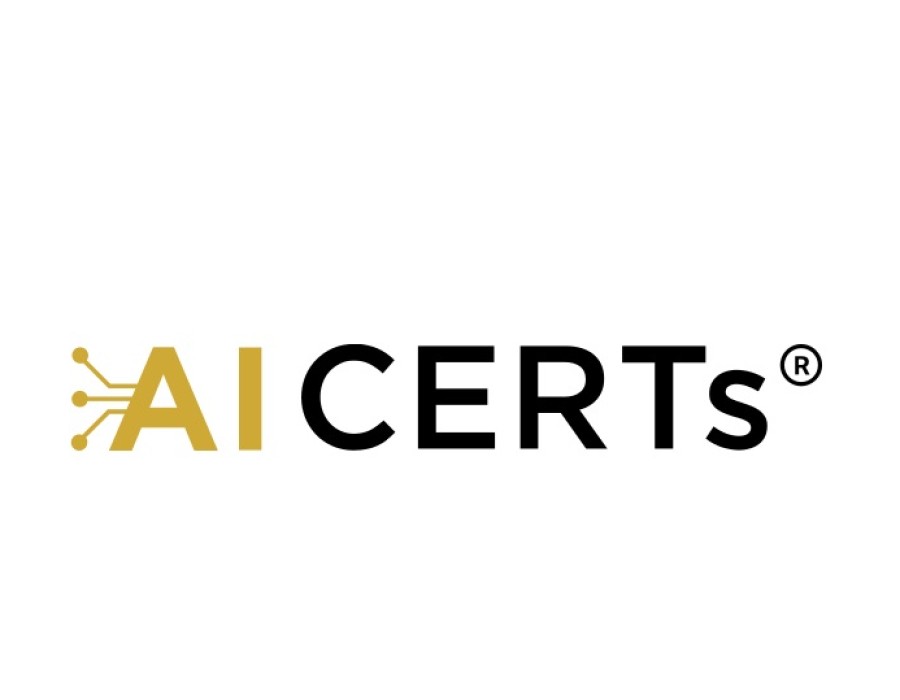In a world increasingly shaped by artificial intelligence, the demand for responsible and ethical AI development has never been more critical. As AI becomes central to decision-making across healthcare, finance, education, and law enforcement, so does the need to ensure it is developed and deployed in a way that upholds transparency, fairness, and accountability. This is where an AI ethics certification comes into play — serving as a structured pathway for professionals to understand and apply ethical principles in AI systems.
Whether you're a data scientist, software engineer, compliance officer, or policy advisor, earning a certification in AI ethics ensures that you not only understand the legal and societal implications of AI but also possess the tools and mindset to act responsibly in real-world scenarios.
Why Pursue an AI Ethics Certification?
AI ethics isn't just a philosophical concept; it's a practical necessity. AI systems have shown the potential for biased outcomes, privacy violations, and even opaque decision-making processes that are hard to audit. An AI ethics certification bridges the gap between technology and ethical responsibility by offering frameworks that guide professionals in the ethical deployment of AI.
This type of certification enables professionals to recognize ethical dilemmas, perform impact assessments, and make informed decisions that minimize harm. Additionally, organizations increasingly seek certified talent to reduce risks associated with AI and to ensure their models align with societal values.
Key Areas Covered in AI Ethics Certification
An AI ethics certification typically encompasses a wide range of topics. These modules are grounded in real-world case studies, legal standards, and leading academic research.
Core Ethical Principles
Every certification program begins with the foundational principles of AI ethics. These include:
- Transparency – Making AI systems understandable and traceable.
- Fairness – Mitigating biases that can lead to discrimination.
- Accountability – Ensuring that developers and organizations are responsible for the behavior of their AI systems.
- Privacy – Protecting user data and ensuring consent.
- Safety and Reliability – Ensuring systems function as intended in all scenarios.
These principles are not just theoretical. Through ethical AI training, professionals learn how to embed these values into machine learning models, data governance, and algorithmic decisions.
Understanding Societal and Cultural Impacts
Ethics in AI is deeply connected to its societal context. AI that is developed without consideration for diverse cultural norms and values can unintentionally cause harm. Certification programs help learners develop the ability to identify and navigate these risks in diverse global environments. This is especially important for companies operating across multiple regions with different regulatory expectations.
Regulatory and Legal Frameworks
With new AI laws being introduced worldwide — such as the EU’s AI Act, Canada’s AIDA, and the U.S. Algorithmic Accountability Act — professionals must stay informed of regulatory requirements. AI ethics certifications often include comprehensive modules on compliance, helping participants navigate international legislation.
This is where AI governance and ethics learning becomes essential. Professionals gain insights into how organizational governance models should incorporate ethics checkpoints across the AI development lifecycle. From model creation and validation to deployment and maintenance, governance strategies help minimize ethical risks and reinforce trust.
Risk Management and Auditing
Ethical risk assessment is a growing field, and certifications prepare learners to develop frameworks that proactively identify and mitigate AI-related risks. Topics often include:
- Bias detection technique
- Auditability of AI systems
- Ethical review boards and their roles
- Decision impact modeling
The training also introduces tools and methods for ethical audits — a process becoming standard practice in high-stakes sectors like banking and healthcare.
Building Responsible AI Teams and Culture
Ethics isn’t just about individual responsibility; it's also about the culture within an organization. AI ethics certifications promote strategies for embedding ethical thinking into team structures, workflows, and leadership. Learners explore how to foster a culture of questioning, reflection, and shared responsibility among technical and non-technical stakeholders alike.
By undergoing such programs, professionals are equipped not just to build ethical AI, but to lead initiatives that institutionalize ethical behavior across departments.
Learning Pathways and Tools
Many certification programs offer flexible online modules, interactive case studies, and collaborative workshops. Participants are often exposed to real-life case studies involving ethical lapses — such as biased facial recognition systems or misleading recommendation engines — and are asked to evaluate and propose solutions.
This process helps individuals learn AI ethical practices that are directly applicable to their work environments. By the end of the program, participants gain both theoretical knowledge and practical tools for driving ethical innovation.
Some certifications are targeted specifically at tech professionals, while others cater to policymakers, educators, or business leaders. Depending on the program, you may also receive access to community networks, mentorship, or post-certification support.
Corporate Responsibility and Compliance
With growing scrutiny from regulators and the public, organizations are turning to AI ethics compliance training as part of their larger risk management strategy. For companies that rely on AI to automate key decisions — such as hiring, lending, or diagnostics — ensuring staff understand ethical implications is not optional.
Compliance training ensures that everyone from developers to C-suite executives can understand their role in upholding responsible AI standards. It also prepares organizations for internal and external audits, reducing the chance of penalties, reputational damage, or public backlash.
Conclusion
As artificial intelligence continues to evolve, so too does the need for ethical stewardship. AI ethics certifications offer a structured, comprehensive approach to understanding the challenges and responsibilities that come with AI innovation. By focusing on core principles, real-world application, and governance frameworks, these certifications empower professionals and organizations to build AI that aligns with human values.
Investing in AI ethics is not just a matter of compliance — it’s a commitment to a future where technology serves everyone fairly, safely, and transparently.




.jpg)

Comments